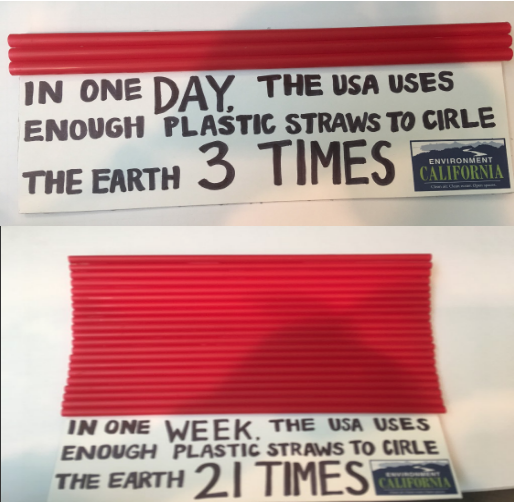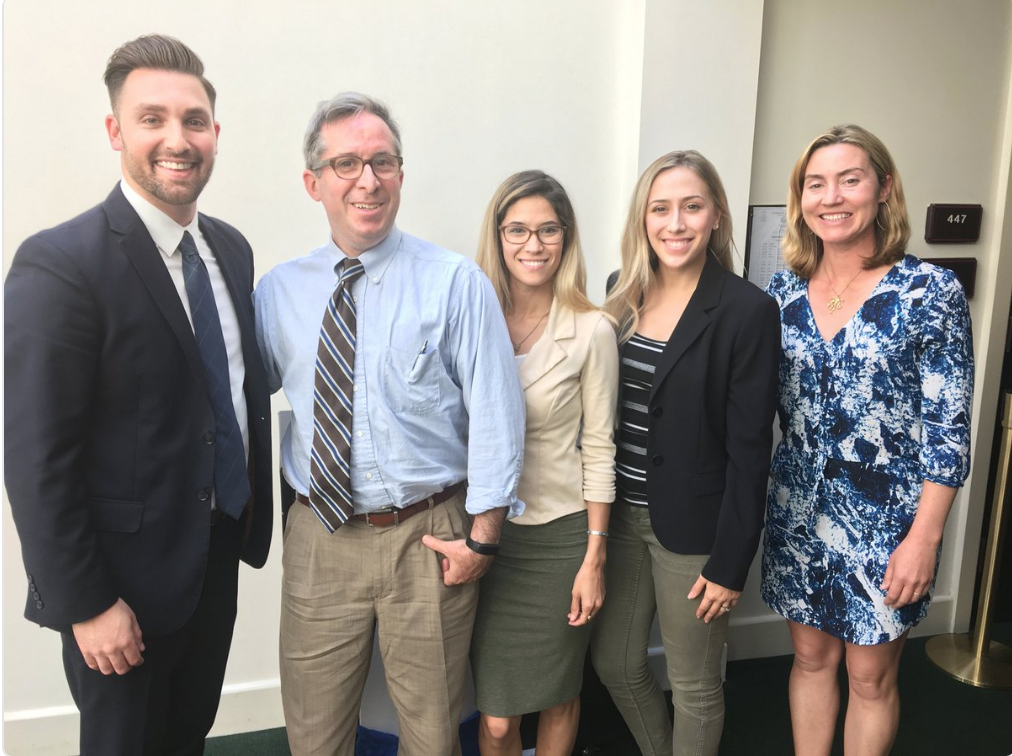Dan Jacobson
Senior Advisor, Environment California
Senior Advisor, Environment California
Sacramento, California – SB 1884 (Solid waste: single-use plastic straws), a bill authored by Majority Leader Ian Calderon (D-57) which calls upon dine-in, full service restaurants to have a‘straw upon request’ policy, was approved by the Assembly Committee on Natural Resources yesterday.
“Nothing that we use for 5 minutes should end up polluting our environment for thousands of years,” said Eileen Tovar, legislative intern with Environment California. “Every year ten of thousands of seabirds and sea animals, like turtles, whales, and dolphins die from our plastic pollution. We need to protect the oceans now.”
This victory follows closely behind Earth Day 2018, which took place worldwide on Sunday, April 22th, and its key theme to reduce pollution from single use plastic products (https://www.earthday.org/).
According to the National Park Services, it is estimated that 500 million plastic straws are used every day in the United States and most are just used once and discarded. During California Coastal Cleanup Days between 1989 and 2014, plastic straws and stirrers were the sixth most common items collected.

If we were to line up the U.S. consumption of 500 million plastic straws, which are 10 inches each, they would circle the earth 3 times in one day, 21 times in a week, and 93 times in a month.
Plastics comprise an estimated 60-80% of all marine debris and 90% of all floating debris due to urban run-off. By 2050, plastics in the ocean will outweigh fish pound for pound if society keeps producing and failing to properly manage plastics at predicted rates, according to a January, 2016, report by the World Economic Forum, The New Plastics Economy: Rethinking the Future of Plastics.
Due to the interplay of ocean currents, marine debris has accumulated in certain areas throughout our oceans. A study published March 22, 2018 found that the North Pacific Gyre contains 79,000 metric tons of debris, much of it being plastic. This study, Evidence that the Great Pacific Garbage Patch is Rapidly Accumulating Plastic, published in Scientific Reports, also reports that microplastics accounted for 94% of the estimated 1.8 trillion pieces of plastic floating in the area and will continue to grow exponentially.
The desire to protect our oceans and the health of all of those who interact with these ecosystems has become a global movement. The United Kingdom has recently proposed banning single-use plastic straws, cotton swabs, and other single-use plastics as soon as next year.

Ian Calderon, Majority Leader, with ocean advocates from Environment California, Heal the Bay, Defenders of Wildlife, and Surfrider.
With legislation like SB 1884, it would be a step in the right direction for California to continue being a steward for environmental protection. This bill can help change the behavior of consumers to make small, but impactful changes that will decrease the plastic pollution that is harming wildlife, clogging up our oceans and waterways, and eventually entering our food chain.
SB 1884 optimistically aims to provide an opportunity for people to change their behavior towards single-use plastic items.
